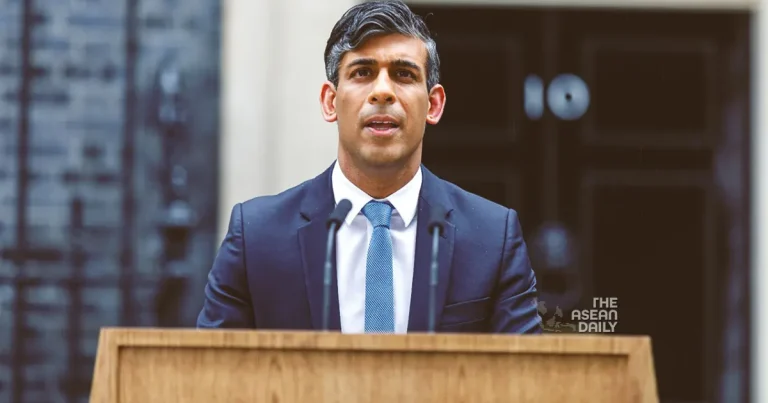30-5-2024 (LONDON) The British political landscape stands poised for a seismic shift as the nation’s parliament dissolved in the early hours of Thursday, May 30, paving the way for a highly anticipated general election scheduled for July 4. This crucial vote carries the potential to propel the Labour Party into power, ending 14 years of Conservative rule.
The official campaigning period commenced at the stroke of midnight (2301 GMT), as all 650 parliamentary seats became vacant in accordance with the electoral calendar. The first week of electioneering, however, has been marred by a series of hiccups and internal divisions within the major parties.
Prime Minister Rishi Sunak’s rain-drenched election announcement was perceived by many as an ill omen, setting the stage for a shaky start to the Conservative campaign. Sunak’s decision to schedule the election for July 4, rather than later in the year as widely anticipated, is viewed as a strategic move to regain momentum amid declining opinion poll ratings for his party.
Trailing Labour by double digits in recent surveys, the ruling Conservatives have also faced a mass exodus of parliamentarians, with 129 MPs announcing their intentions to forgo re-election bids. Of these, a staggering 77 are Conservatives, an unprecedented number for a governing party.
Internal rifts within the Tory ranks have spilled into the open, with one MP openly endorsing a candidate from the right-wing populist Reform UK party in their constituency, resulting in prompt suspension from the Conservatives. Furthermore, certain Conservative candidates have voiced frustration over the unexpected election date, with Steve Baker, the Secretary of State for Northern Ireland, defiantly continuing his vacation in Greece while pledging to prepare his campaign from there.
Despite Sunak’s efforts to promote the Conservatives as the “safe” option during cross-country visits, his campaign has encountered early setbacks. A visit to the site where the Titanic was built drew unflattering comparisons between his leadership and captaining a sinking ship.
After 14 years in opposition, the Labour Party, under the leadership of Keir Starmer, a former human rights lawyer, now has a golden opportunity to reclaim power. Polls currently place Labour at an average of 45% of voting intentions, compared to 23% for the Conservatives, suggesting a substantial Labour victory under Britain’s simple-majority voting system.
In a bid to turn the tide, Sunak is pinning his hopes on the scheduled televised debates with Starmer, the first of which is slated for next Tuesday on ITV.
While seeking to capitalize on public weariness with the Conservatives’ tumultuous tenure, marred by numerous scandals and economic woes, Labour has not been immune to internal divisions of its own.
Starmer has actively steered the party towards a more centrist position, purging former left-wing leader Jeremy Corbyn and taking steps to root out anti-Semitism within its ranks. However, this shift has exposed long-standing factional rifts, with veteran MP Diane Abbott expressing dismay at the party’s desire to bar her from candidacy.
Starmer has maintained that Abbott’s fate, stemming from her suspension last year over comments on racism, has yet to be decided. Nonetheless, the treatment of the highly respected 70-year-old, who has served as an MP for 37 years, has provoked fierce criticism and condemnation from leftist voters accusing Starmer of rolling back promises made during his successful leadership campaign.




